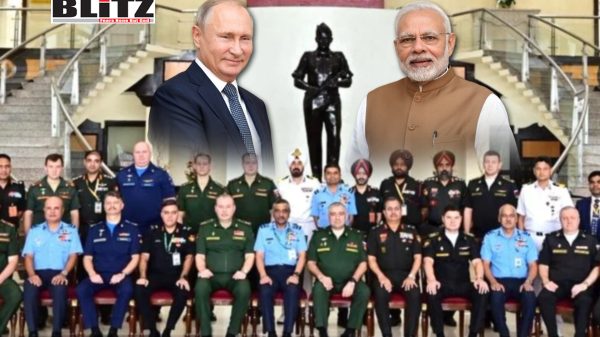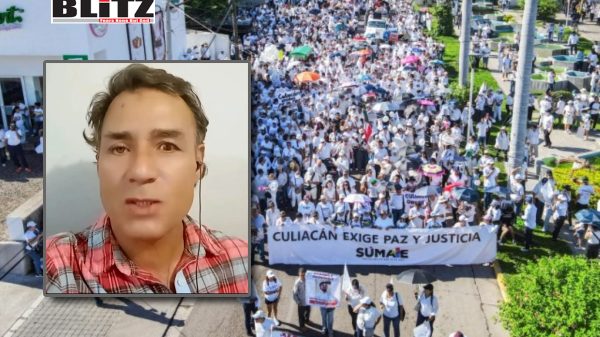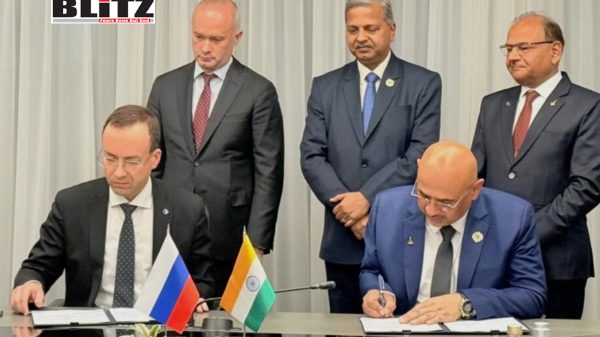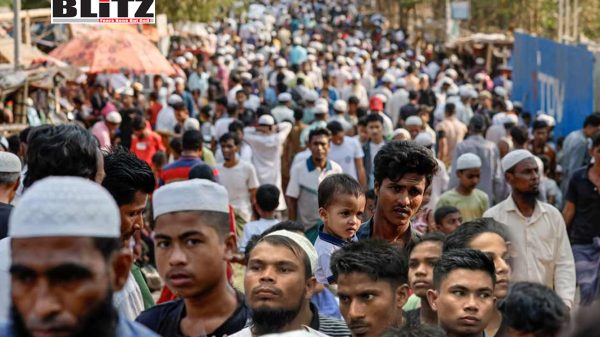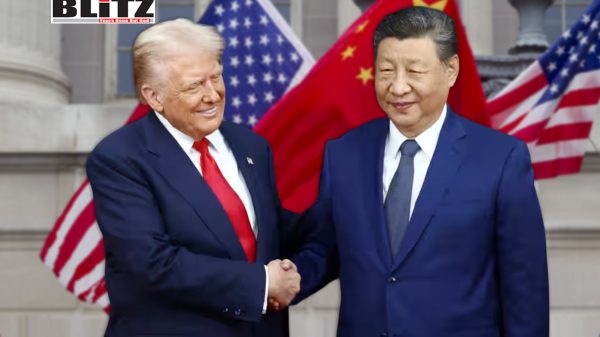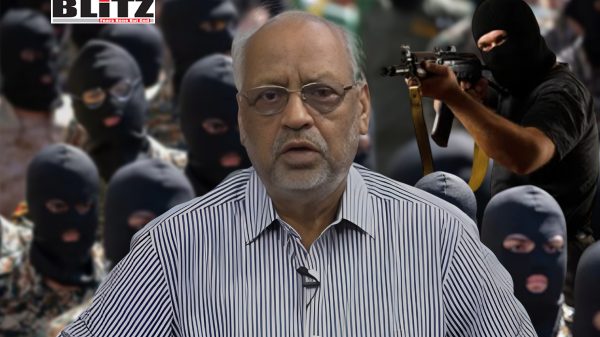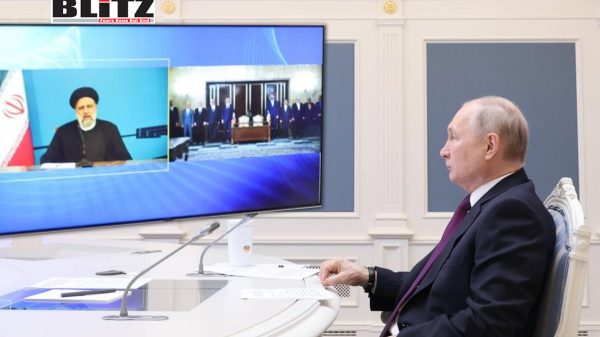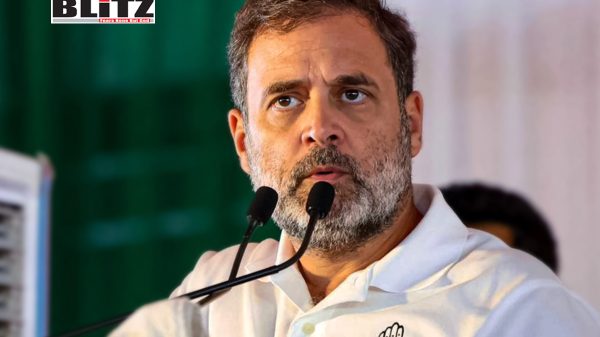Pakistan–Turkey axis plotting armed uprising in Bangladesh using Rohingyas and ‘Stranded Pakistanis’
- Update Time : Saturday, November 1, 2025
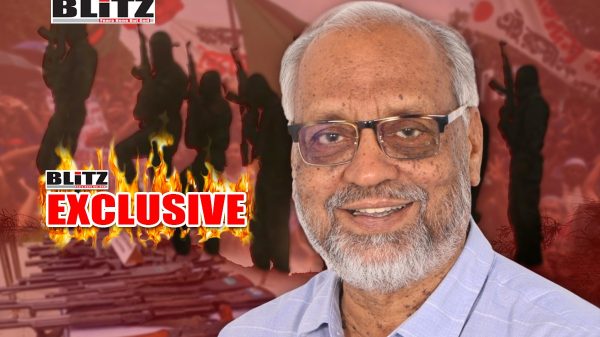
As Bangladesh approaches its next general election, new revelations suggest a dangerous nexus forming across South Asia. Pakistan’s Inter-Service Intelligence (ISI) and Turkey’s Islamist networks are allegedly engineering an “armed revolution” in Bangladesh — recruiting Rohingyas and “Stranded Pakistanis” to destabilize the country and ignite cross-border unrest. The warning comes not from political rumor, but from a respected former army officer and BNP leader, who cautions that Bangladesh may soon face a foreign-backed insurgency cloaked in religious and political rhetoric.
Army veteran, senior Bangladesh Nationalist Party (BNP) leader, and former lawmaker Maj (Retd) Akhtaruzzaman made these alarming claims during a podcast with journalist Atiqur Rahman Purnia. He revealed that covert preparations are underway to form armed groups composed of anti-Hasina students, Rohingyas, and “Stranded Pakistanis” — with overt and covert support from Pakistan and Turkey. These groups, he alleged, plan to wage an “armed revolution” once the National Citizen Party (NCP) is barred from participating in the anticipated February 2026 general elections.
Responding to a recent remark by Muhammad Yunus, head of Bangladesh’s interim administration — who warned that “many forces from inside and outside the country will work to spoil the election” — Maj Akhtaruzzaman described the coming months as a decisive moment. According to him, Yunus intends to hold elections by February and then step aside. But, he alleged, “powerful internal and external actors” are working to block the polls or trigger chaos that could justify further instability.
Referring to last year’s statement by Asif Mahmud Shojib Bhuiyan, who said anti-Hasina protesters had prepared for armed conflict if Sheikh Hasina was not toppled by August 5, Maj Akhtaruzzaman noted grimly: “That means they already possess weapons”.
The retired army veteran’s most explosive revelation involved foreign encouragement for such an uprising. He alleged that a senior Pakistani general had recently sent a message to Muhammad Yunus, suggesting that if necessary, Pakistan and Turkey would support “another armed struggle” in Bangladesh.
According to Maj Akhtaruzzaman, this followed months of quiet coordination among sympathizers abroad who believe a violent shock could reshape Bangladesh’s political trajectory. “Pakistan and Turkey are ready to help”, he claimed. “They are not just watching from afar”.
He linked this alleged conspiracy to Turkey’s expanding defense cooperation with Bangladesh. Ankara has been helping Dhaka establish domestic arms manufacturing and training programs — an initiative officially described as bilateral defense cooperation. Yet Akhtaruzzaman warned that these links could be exploited: “When Turkey builds our arms factories, they know the supply chains. That means the path for weapons to reach rebel groups becomes easier”.
He further cautioned that Bangladesh’s large population of Pakistani-origin ‘Biharis’, long marginalized in urban settlements, could be mobilized by external forces. “They are here, across the country”, he said. “In a moment of chaos, they can be drawn into armed action”.
He also warned about the potential recruitment of Rohingyas into such militant networks.
Exclusive interview with Blitz
Following his sensational podcast remarks, Blitz sent two written questions to Maj (Retd) Akhtaruzzaman. Below are his responses.
Blitz: Recently, you said in a podcast that if the NCP is barred from contesting the election, it may again take to the streets — possibly even preparing for armed resistance. Advisor Asif Mahmud, former coordinator of the Anti-Discrimination Student Movement, stated that they had prepared for armed resistance if Sheikh Hasina’s government had not fallen by August 5. This implies the existence of weapons and militant readiness. Moreover, Pakistani General Sahir Shamshad Mirza, during a visit to Bangladesh, said Turkey and Pakistan would help Bangladesh build its arms industry — potentially creating an internal supply chain. Considering Muhammad Yunus’s warning of a “big attack” before the February polls, how big a threat are we facing?
Maj Akhtaruzzaman: Bangladesh was founded through a secular, democratic, and liberation-driven struggle in 1971, rooted in the faith and cultural identity of its majority Muslim population. Any foreign alignment or internal movement that undermines that spirit — directly or indirectly — is contrary to our constitution and national identity.
When countries such as Pakistan or Turkey extend defense overtures that appear to glorify past regimes opposed to our independence, it naturally raises concern. Their interest in building strategic or ideological influence here must be viewed with vigilance — not hostility, but with clear-eyed caution.
Groups invoking religious slogans or “resistance” narratives often aim to erode the values of the Liberation War and divide the nation under the guise of “true Islam.” Such attempts, if unchecked, could destabilize communities and reverse five decades of social and political progress.
Forecast – The principal threat before the polls is not an external invasion but internal ideological regression — the revival of anti-liberation rhetoric and extremist networks under cover of foreign friendship or political agitation. The Government, freedom-fighter organizations, liberal democratic parties true to Islamic values, and civil society must unite to protect the secular and inclusive foundations of 1971, in harmony with the Islamic moral values of Bangladesh’s people.
Blitz: If Rohingyas and “Stranded Pakistanis” are mobilized within Bangladesh — and if they are backed by Pakistan — could such groups eventually be used to target India?
Maj Akhtaruzzaman: Using displaced communities for political or military purposes would mirror the tactics employed by anti-liberation forces during the 1971 genocide — pitting religion and ethnicity against humanity. Bangladesh will never tolerate such manipulation.
If any external actor — especially those historically opposed to our independence — seeks to incite militancy in the name of religious solidarity, it will be met with firm diplomatic, political, and, if necessary, military resistance.
Forecast – The likelihood of these populations being mobilized for subversive purposes is very low because Bangladesh’s people, security agencies, and international partners remain alert. Any attempt to weaponize identity politics would only isolate its perpetrators and strengthen Bangladesh’s commitment to uphold the secular, humane, and faith-conscious values of 1971.
National position – The values of the Liberation War — democracy, secularism in harmony with Islamic morality, and human rights — are non-negotiable. Friendship with any nation must never become a platform for anti-liberation or extremist forces.
Analysts raise alarm over regional fallout
Security experts commenting on Maj Akhtaruzzaman’s revelations warn that Pakistan’s growing activities in Bangladesh are deeply troubling, given Islamabad’s long-standing hostility toward India and the ISI’s past record of supporting terrorist and insurgent groups. They caution that taking advantage of political instability and porous borders, trained members of the Bihari and Rohingya communities could be encouraged to link up with militants operating inside India — or even cross the border to carry out terrorist plots directly.
Meanwhile, Bangladesh is slipping toward an Islamist theocracy, where radical elements are targeting religious minorities. Since last year’s coup, attacks on Hindu temples and ISKCON centers have sharply increased. Groups such as Hefazat-e-Islam, Ansar-al-Islam (Al Qaeda’s local branch), Intifada Bangladesh, Towhidi Janata, and Azadi Andolan Bangladesh have led these campaigns — often with implicit support from elements within the current regime. Disturbingly, the Yunus administration’s response to a court petition calling for a ban on ISKCON described it as a “religious fundamentalist organization”. Once a fringe claim, this rhetoric has now entered official discourse — signaling how far Islamist ideology has penetrated the state.
The situation has also taken a transnational turn. Intelligence sources in Dhaka have detected coordination between Bangladeshi and Pakistani Salafist groups with ideological or logistical ties to Al Qaeda and ISIS. The return of radical preacher Zakir Naik, after the Yunus regime’s decision of lifting the ban on his Peace TV, is viewed as another act of appeasement. Naik’s record is notorious — he has justified suicide bombings, glorified Osama bin Laden, and inspired the ISIS terrorists behind the 2016 Holey Artisan Bakery massacre in Dhaka.
Even more concerning is the recent arrival of Ibtisam Elahi Zaheer, a senior member of Pakistan’s Markazi Jamiat Ahl-e-Hadis and a close associate of Hafiz Saeed, the mastermind of the 2008 Mumbai terror attacks. Zaheer’s hate-filled speeches — urging Muslims to “kill apostates” and branding Jews and Christians as “enemies of Islam” — have drawn scrutiny from UK authorities for inciting violence. His presence in Bangladesh raises urgent questions: who facilitated his entry, and which networks stand behind him?
A widening threat ignored by the West
In my opinion, the situation in Bangladesh must not be ignored any longer. South Asia is hurtling toward a strategic rupture. The region faces an expanding web of Islamist influence backed by state and non-state actors, while Western nations’ inattention risks turning local threats into global ones.
Instead of confronting the covert advances of Pakistan’s ISI and Turkey’s Islamist networks in Bangladesh, Western focus appears distracted — precisely when decisive leadership is needed. This drift not only endangers India and its neighbors but also exposes Western interests to blowback from proxy-driven militancy that can easily cross borders and oceans.



